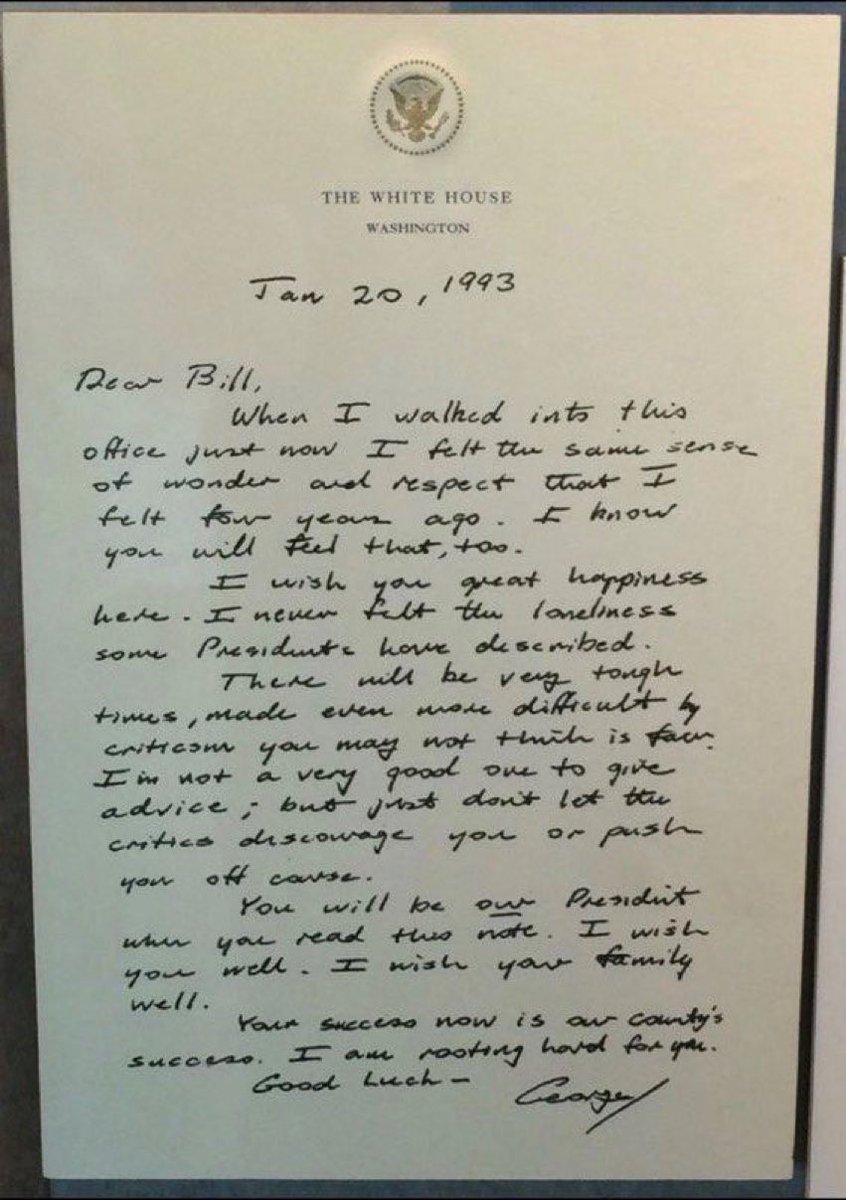
This is the 15th instalment of #deanehistory.
George HW Bush was 41st President of the USA, & father of the 43rd. To the modern audience, perhaps he's best known as author of the classiest letter to a successor to have become public.
But there's much more to him to be known.
George HW Bush was 41st President of the USA, & father of the 43rd. To the modern audience, perhaps he's best known as author of the classiest letter to a successor to have become public.
But there's much more to him to be known.

The last President to serve in combat, he was a Navy pilot, serving with distinction in the 2nd World War, flying 58 combat missions, receiving three Air Medals & the DFC. After the war he was successful in the oil industry, relocating his family to Texas.
Then came politics. He was a member of the US House of Representatives, for Texas, & US Ambassador to the UN. He chaired the Republican National Committee.
He was the most senior diplomat in China (effectively the Ambassador, prior to the restoration of diplomatic relations).
He was the most senior diplomat in China (effectively the Ambassador, prior to the restoration of diplomatic relations).
He was Director of the CIA.
He served as Vice President to President Reagan for two terms of great significance.
He served as Vice President to President Reagan for two terms of great significance.
Last of all, he was President when the Berlin Wall fell & the Communist regimes were dismantled. He successfully brought together a coalition in response to the invasion of Kuwait.
In my view, he was perhaps the most well credentialed and experienced man in public life in our time.
Towards the end of this life of public service, he was asked to reflect on this record & say what made him most proud.
Towards the end of this life of public service, he was asked to reflect on this record & say what made him most proud.
He thought, & said with certainty: “my children still want to come home”.
One more story. Former Presidents still have a Security Service detail.
One of Bush’s guards had a little boy with luekemia. In sympathy & love Bush’s detail shaved their heads for their comrade.
They turned up for duty the next day. Former President Bush had shaved his head.
One of Bush’s guards had a little boy with luekemia. In sympathy & love Bush’s detail shaved their heads for their comrade.
They turned up for duty the next day. Former President Bush had shaved his head.
• • •
Missing some Tweet in this thread? You can try to
force a refresh


